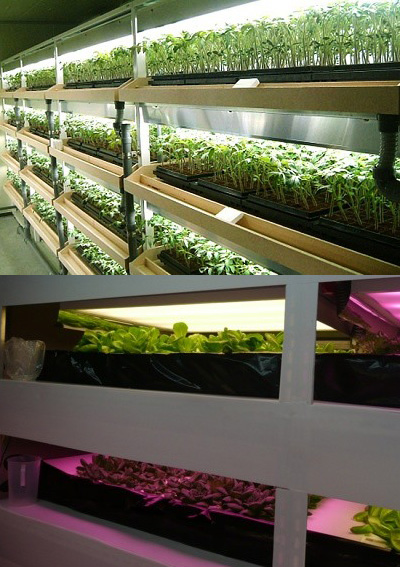ITRI Develops Cutting-edge Technologies to Nurture Prospective Industries in Southern Taiwan
2013/02/19 | By Steve ChuangThe southern region covering almost one-fourth of Taiwan has been developed as the island's major industrial base, including 19 distinctive industrial clusters, mostly related to traditional manufacturing. To further vitalize the local economy, Industrial Technology Research Institute (ITRI) is developing cutting-edge, proactive technologies to nurture prospective industries that are theoretically suitable for development in the region.
Dynamic LED Lighting Engineering for Landscaping
LED manufacturing has been one of Taiwan's most globally competitive industries over the past years, but operators face worsening underselling against emerging rivals, according to Lin.
“The main reason LED makers' margins have almost bottomed in global competition is that they mostly concentrate on hardware production. Despite years of development, Taiwanese makers still lack capabilities in developing software for controlling and integrating LED lightings, which is key to sustaining future growth,” said Lin.
China is an example, Lin added, which has built LED landscape lighting and large-sized LED displays nationwide as part of its 12th Five-year Plan after seeing its Water Cube and Bird's Nest centers with vibrant LED lighting effectively impress foreigners during the 2008 Olympics. So the Chinese government's move to promote constructing of dynamic outdoor LED lighting will likely motivate local operators to develop lighting software, which will allow the industry to sharpen competitive advantage in the long run.
To help local operators shift to higher value-added production, ITRI has developed LED control software for nocturnal lighting, which has been used to integrate dynamic landscape lighting with audio system for Chihkan Tower, a tourist spot with historical buildings in Tainan City, southern Taiwan. Lin said that the software controls lighting patterns and colors automatically according to music and graphics projected onto walls of the building to animate telling of the city's history to visitors.
Lin believes LED outdoor lighting engineering holds promise as industry in southern Taiwan, for many LED companies and software developers are clustered in the region, with local LED makers able to go upmarket to evade underselling and revive growth in the future.
Smart Agriculture
Another prospective industry being developed by the ITRI is smart agriculture, including plant factories or agricultural industrialization, and related technologies and instrument.
Lin indicated that development of plant factories in Taiwan, in fact, was initiated by a couple of local university professors many years ago, and got under way in 2010 when the Taiwanese government first included the industry in its industrial development policy. The Ministry of Economic Affairs has set the development plan of the industry in motion, with ITRI, Metal Industries Research & Development Center, Institute for Information Industry and National Pingtung University of Science and Technology involved.
Taiwan is developing plant factories partly because of increasing famine and rising food prices caused by climate change, and partly because of fluctuations of international oil prices leading to unstable prices of imported food, commented Lin, who added that the industry will be able to reverse the island's low self-sufficiency in food supply, which stands at around only 30% at present according to statistics compiled by the government.
Asked why this industry is ideal for development in southern Taiwan, Lin reasoned that crop growing has come a long way as a main industry across the region over the past decades, with considerable land still left for development. In terms of technologies and facilities needed to build plant factories, the region, clustered with LED makers, solar panel suppliers, ICT (information and communication technology) companies, can provide better opportunities for the industry to develop and grow on sound supply-chains.

Among the most active countries dedicated to industrializing agriculture is China, Lin said, for this country has the world's largest population but is troubled by diminishing arable land due to degradation and desertification. “China takes advantage of its well-developed IPV6 (Internet Protocol Version 6) networks to nurture this industry, because with IPV6, sensor nodes, for instance, can work better in helping crop growers monitor and control environmental factors,” said Lin. This will assure sound development of the industry, not to mention that the Chinese government also encourages local companies to supply smart agricultural instrument, according to Lin.
Compared to China, Taiwan, Lin admitted, has a long way to go in developing smart agriculture and plant factories, for the island lags in development of smart agricultural instrument, despite its mature ICT industries. So, the Taiwanese government expects to tap synergies among ITRI and other R&D bodies, local universities to accelerate development of the industry.
Benefits of growing crops in plant factories are considerable, said Lin. For instance, under precise control, output of tomatoes from a plant factory can surge to 60-70 kilograms per square meter, 8-15 times higher than achieved in ordinary farms.
Furthermore, crop production coordinated by smart agricultural instrument is less affected by climate and other environmental factors, so food supply can be effectively ramped up and remain consistent to ensure a country's sustainable development. Besides, with planned production of crops, food supply and demand can be balanced more easily to safeguard growers' profits.
So far, Lin confirmed, ITRI and its partners boast several achievements in nurturing the smart agriculture industry after years of research, which will be used to produce cash crops initially, said Lin. “Our plant factory still has room for improvement for it can't achieve economic efficiency in production of ordinary crops presently. But development of the industry is significant for being related to Taiwan's food security; so our efforts are properly directed,” said Lin.




